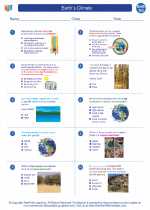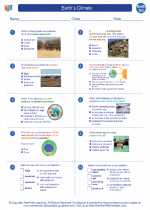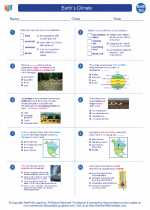Nutrition
Nutrition is the process by which organisms obtain and utilize food for growth, maintenance of body functions, and energy. It is a fundamental aspect of life and is essential for the proper functioning of all living organisms.
Key Concepts
- Macronutrients: These are nutrients that are required in large amounts by the body and include carbohydrates, proteins, and fats. Carbohydrates provide energy, proteins are essential for growth and repair, and fats serve as a concentrated source of energy and help in the absorption of fat-soluble vitamins.
- Micronutrients: These are nutrients that are required in smaller amounts and include vitamins and minerals. Vitamins are essential for various metabolic processes, while minerals are important for bone health, fluid balance, and other physiological functions.
- Digestion: The process by which the body breaks down food into smaller components that can be absorbed and utilized. It involves mechanical and chemical processes in the mouth, stomach, and intestines.
- Metabolism: The sum of all chemical reactions that occur in the body to maintain life. It includes the processes of energy production, synthesis of new molecules, and breakdown of nutrients for energy.
- Dietary Guidelines: Recommendations for a healthy diet, including the consumption of a variety of foods, moderation in portion sizes, and the importance of staying hydrated.
Study Guide
1. What are the main macronutrients and their functions?
The main macronutrients are carbohydrates, proteins, and fats. Carbohydrates provide energy, proteins are essential for growth and repair, and fats serve as a concentrated source of energy and aid in the absorption of fat-soluble vitamins.
2. What are the main micronutrients and their roles in the body?
The main micronutrients are vitamins and minerals. Vitamins are essential for various metabolic processes, while minerals are important for bone health, fluid balance, and other physiological functions.
3. Describe the process of digestion and its importance in nutrition.
Digestion is the process by which the body breaks down food into smaller components that can be absorbed and utilized. It involves mechanical and chemical processes in the mouth, stomach, and intestines. Proper digestion is essential for the body to access the nutrients in food.
4. Explain the concept of metabolism and its relationship to nutrition.
Metabolism is the sum of all chemical reactions that occur in the body to maintain life. It includes the processes of energy production, synthesis of new molecules, and breakdown of nutrients for energy. Nutrition provides the raw materials for metabolism to occur.
5. What are the key components of a healthy diet according to dietary guidelines?
A healthy diet should include a variety of foods, moderation in portion sizes, and adequate hydration. It should also include fruits, vegetables, whole grains, lean proteins, and healthy fats.
Studying nutrition is essential for understanding the role of food in maintaining health and wellness. By grasping the key concepts and principles of nutrition, individuals can make informed choices about their diet and overall well-being.
[Nutrition] Related Worksheets and Study Guides:
.◂Earth Science Worksheets and Study Guides High School. Earth`s Climate

 Worksheet/Answer key
Worksheet/Answer key
 Worksheet/Answer key
Worksheet/Answer key
 Vocabulary/Answer key
Vocabulary/Answer key
 Vocabulary/Answer key
Vocabulary/Answer key
 Vocabulary/Answer key
Vocabulary/Answer key
